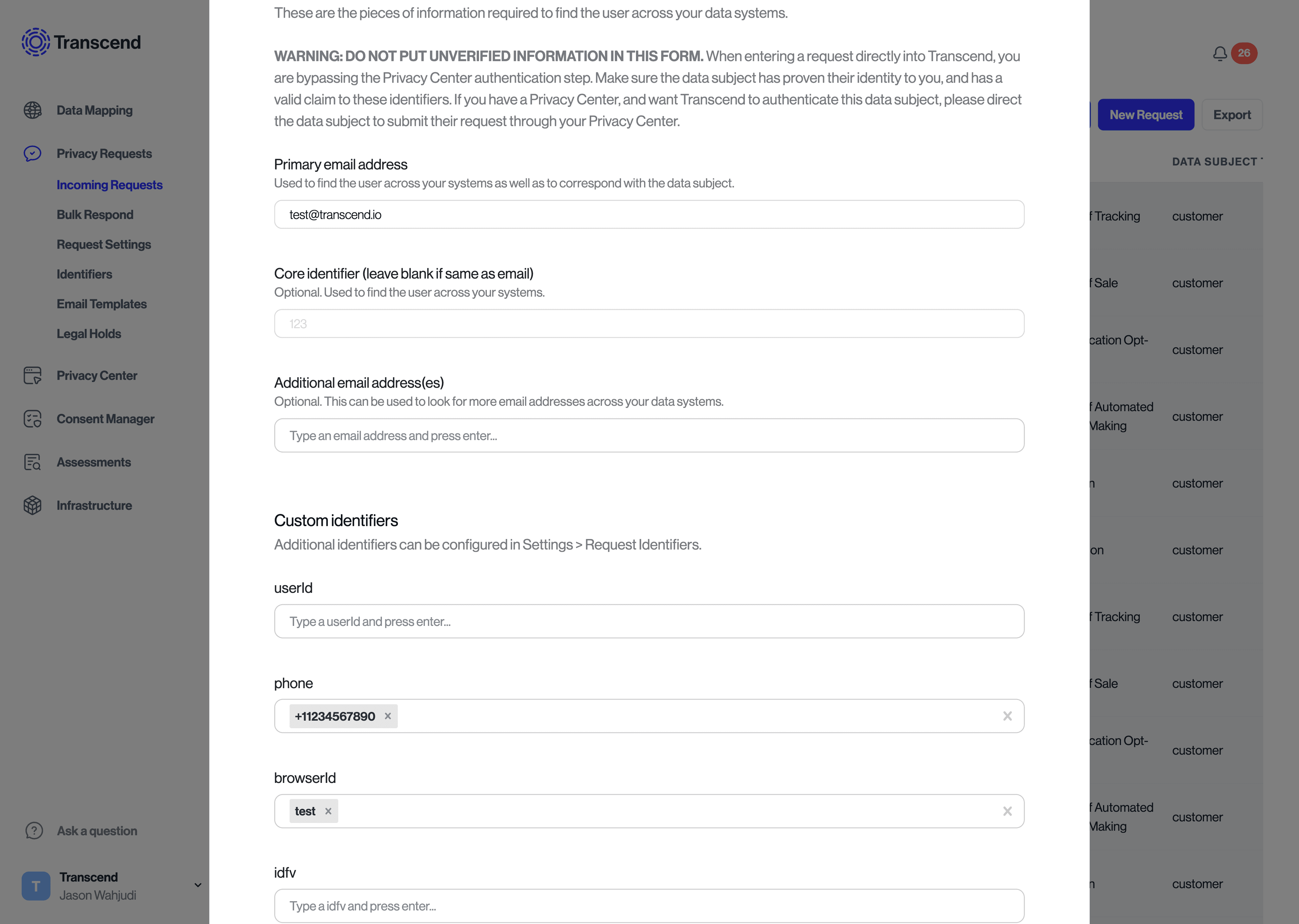Teradata Integration
Transcend Teradata integration provides user the capability to configure the query template for each data action in JSON format. Users can place dynamic fields in the query template, which would then be replaced with string values according to the name of the dynamic fields. Teradata currently also supports requests with multiple identifiers. This functionality will be updated in the future to support all integrations.
Each query template can consist of multiple dynamic fields. These fields are optional, but will create different strings to replace the fields. Each dynamic field will have a format like so {{name}}. Current supported dynamic fields are:
{{requestId}}- replace the field with the DSR request ID{{transactionId}}- replace the field with a random integer ID{{timestamp}}- replace the field with the current timestamp of when request is generated
Teradata can also support multiple identifiers.
- Enable any of the needed identifiers. Currently this functionality only support email, phone, and a custom identifier
- When specifying the query templates, specify the correct query identifiers according to the type. Supported types would be:
{{email[0]}}- replace with first email identifier{{phone[0]}}- replace with first phone identifier{{custom[0]}}- replace with first custom identifier (all custom identifiers would be of type custom)
The number after the identifier type specify the index, when there is more than one of each type of identifier provided
ex. if the request has two identifiers of type phone and email, then in the query template you would need to specify these identifiers:{{email[0]}}and{{phone[0]}}.
- Create the request with all the required identifiers.

Note: This functionality is only specific for Teradata. On any other integration, having multiple identifiers in a from would create more a profile for each identifier, meaning each identifier would be queryarn script:generateStaticImageDataied separately.
This is an example of a query template, combining everything from dynamic fields to multiple identifiers
{
"CardNumber": "{{custom[0]}}",
"Phone": "{{phone[0]}}",
"Email": "{{email[0]}}",
"ReasonCD": "{{requestId}}",
"TransactionID": "{{transactionId}}",
"EventTimestamp": "{{timestamp}}"
}- CardNumber - will contain a custom identifier
- Phone - will contain a phone identifier
- Email - will contain an email identifier
- ReasonCD - will contain the DSR request ID
- TransactionID - will contain a random generated integer ID
- EventTimestamp - will contain a timestamp of when the DSR request is generated